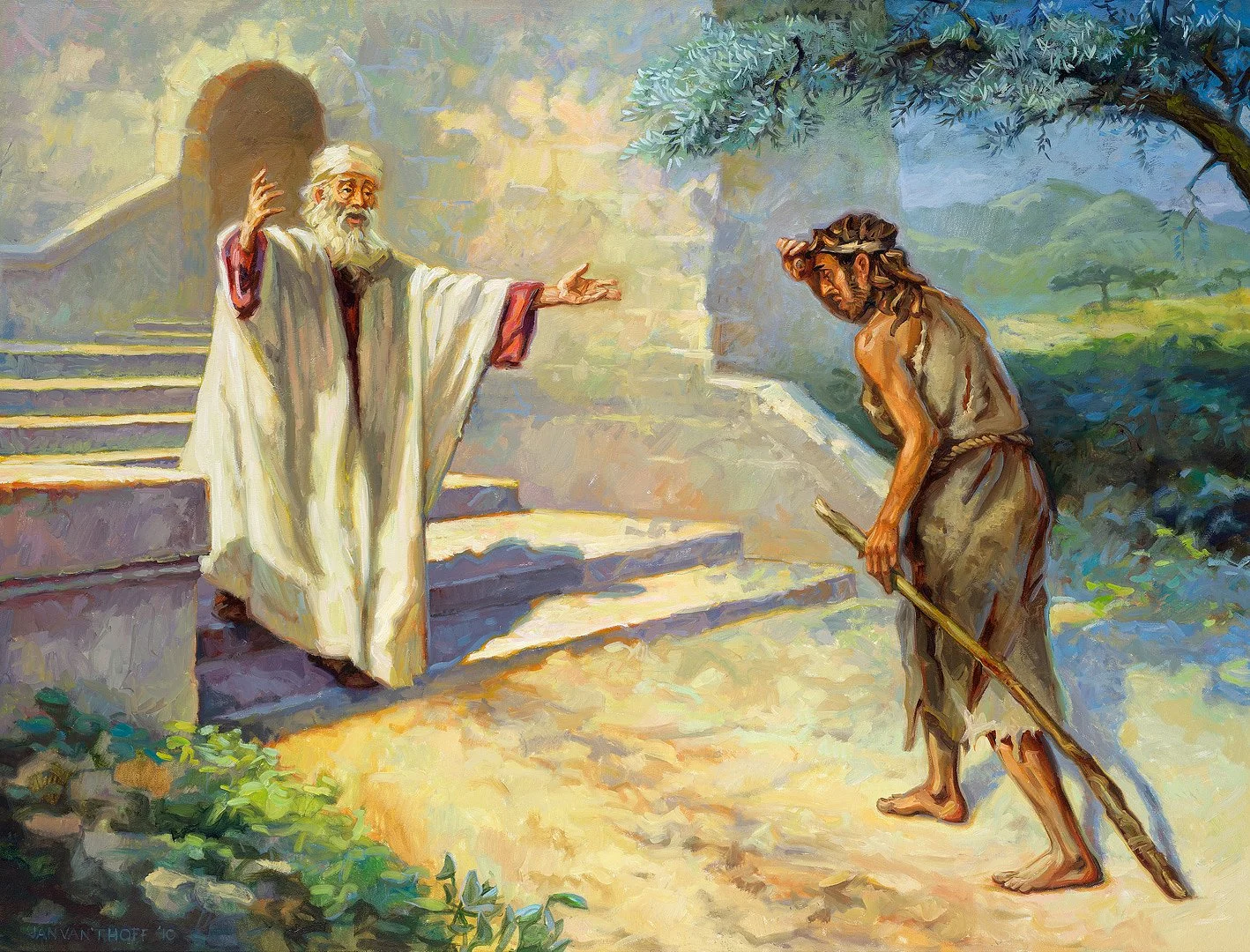The Wild One: Our Story
By: Jack Wyman
I think this kid has gotten a bum rap.
He was, after all, just a young man with a lot of ideas about what the world was like. He wanted to see it, experience it, and enjoy it. Life had to be more than this. Why wait?
He wanted out. He wanted to be free—free from restraint, from routine, and from responsibility. He'd had enough of the drudgery of the accountable life.
It was time to find out what lay beyond the ranch gate.
He's been condemned as rebellious and disrespectful, and he likely was. But our rush to judgment must be tempered by our own experience. Anyone who has ever known the young, taught the young, raised the young or has ever been young understands that in this great and familiar story Jesus touched a universally responsive chord.
Youth is often filled with big dreams and big ambitions. It's natural. Even sweet-hearted George Bailey, stuck in Bedford Falls, chafed to be free. "I'm shaking the dust of this crummy little town off my feet," he told a friend, "and I'm going to see the world!"
Expressed or repressed, this is the desire of the young.
"A man had two sons".
With this simple and direct understatement Jesus begins the story that has moved hearts and impacted the world for more than two thousand years. In art, literature, film, and in pulpits around the world the Parable of the Prodigal Son has been told thousands of times.
It’s a story that will never grow old because its truths and lessons are timeless.
In no other biblical account save the birth, death, and resurrection of Christ himself do we see the essence of Christianity so purely and beautifully portrayed.
We recall it and love it because, in the end, it is our story. It is the story of all of us and of each of us.
We see and hear the characters of this poignant drama—by turns despicable, desperate, and devout—and, if honest, we identify with each one. Here is the range of human emotions as if captured on canvas. We know this feeling. We've felt this way. We've acted this way. We've thought these thoughts. We join a universal audience to hear a story re-told by generations.
The younger son musters his chutzpah and tells his father he wants his share of the inheritance.
Now.
The father knows this is the wild one. He's seen his spirit and his resistance as he entered his teen years. Dr. James Dobson would have called him The Strong-willed Child. But the dad loves him, even admires his tempestuousness. He may even have spoiled him a bit.
In Jewish custom, this demand of the younger son is a flagrant offense—an indignity to the father. It's an embarrassment to the family and a scandal to the neighbors. To ask for one's inheritance while the parent still lived was an unthinkable affront.
Those hearing this story for the first time were a mixed bag.
Dr. Luke, who records this parable in the 15th chapter of his gospel, points out in the opening verses that there is strong tension. The "tax collectors and notorious sinners" flocked to hear this most winsome and fascinating of rabbis. The envious religious establishment—the Pharisees—viewed him as a threat and complained about the unsavory company he often kept (Luke 15:1-2).
It's safe to say that both mutually suspicious groups were found in Jesus' audience that day. They governed the story and its purpose. Jesus knew their hearts, and now he would touch them.
We don't know how the father reacted to the son's demand. Was he stunned? Was he angry? What did he say? Did he object or try to talk his son out of this intemperate insistence? Was there any argument? Was there any attempt at reasoning?
We know only what the father did. He gave both his sons what only the younger one had demanded: his wealth.
This broke the father's heart. Whatever he said or didn't say, the dad knew this was wrong—a bad choice made by a good kid under the headstrong influence of an urgent impulse. If he thought there was anything he could do about it he probably didn't try.
That night his pillow was wet. He didn't sleep.
Many of us have been here. Some argue the father was weak. Or was he just wise?
The boy didn't leave at first. He stayed around a few more days. Then Jesus says he "packed all his belongings and moved to a distant land" (Luke 15: 13, emphasis added).
He left his home. He left the father who had raised him, cared for him, taught him, encouraged him, and provided well for him.
He left the father who loved him. So much that even now, as the boy packed and prepared to walk out, his father longed more than anything else simply to embrace him and tell him how much he loved him. He wasn't too proud to beg but knew it was useless.
“I know you’re going. I just want to say. . .” Tears filled the father’s eyes.
We shake our heads. How could this kid be so thoughtless, self-centered, and short-sighted? So heartless? How could he spurn his own father's love?
Remember, this is our story. It is the story of all of us and of each of us. It is the story of every sinner.
It is the story of humankind.
But it's not over.
To order Jack Wyman’s book, “Everything Else: Stories of Life, Faith and Our World”, go to amazon.com, Christian Book Distributors or barnesandnoble.com. It is also available on Kindle and eBooks.
CHRISTIANS ENGAGED NEEDS YOU!
Would you consider partnering with us as a monthly donor to support the work of our nonprofit ministry? Or maybe a generous one-time donation?

